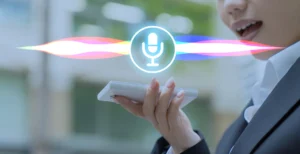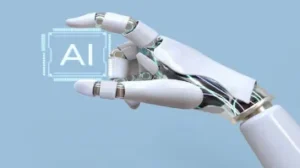Artificial intelligence has surpassed the realm of science fiction and has become a part of human activities because of virtual assistants. AI virtual assistants such as Siri, Alexa, Google Assistant, and Cortana are currently integrated into smart speakers, smartphones, computers, and automobiles. These assistants aren’t just devices for carrying out basic tasks. They are revolutionizing how people communicate, manage their time, and organize information, as well as manage their responsibility. The ease of talking to devices and having them respond to instructions has changed the way people interact with technologies and each other. This shift is evident in our working environments as well as our private lives.
Enhancing Productivity at Work
In professional environments, AI virtual assistants have quickly become indispensable productivity tools. They can help manage appointments, create calendars, send reminders, draft emails, and record notes during meetings and calls. The tasks that previously took up a lot of time can now be handled efficiently by AI and allow people to concentrate on more creative and critical work. For example, virtual assistants are able to alert users to schedule conflicts and automatically schedule appointments or even provide a summary of any missed emails. This efficient management of routine tasks helps save time, eliminates mistakes, and aids professionals in staying organized and productive. As digital secretaries, these assistants help employees maintain a more organized and productive workday.
Streamlining Communication and Collaboration
Communication has become more efficient and more fluid thanks to AI virtual assistants. These assistants can communicate or make calls, convert audio into text, and translate different languages in real-time. In collaborative environments, they aid in establishing video conferences, creating presentations, and retrieving shared notes or documents instantly. Certain advanced AI tools can also assist in brainstorming ideas by providing ideas for content or providing insights based on data. As work gets more digital and remote, virtual assistants help enable communication between teams and create better workflows. The ability of virtual assistants to link applications and platforms helps to make collaboration more seamless, efficient, accessible, and convenient.
Improving Time Management and Organization
Time is among its most precious resources as well. AI virtual assistants excel at aiding people to manage their time effectively. Through setting alarms, reminders, and lists of tasks, they can ensure that work is completed on time. They can keep track of deadlines, assist in determining the best order to complete projects, and offer suggestions based on past behaviors and patterns of productivity. This kind of intelligent planning allows users to keep a healthy, balanced work-life. AI assistants can also give daily reports, including information on news, weather forecasts, and overviews of schedules that help users to start their day well-informed and prepared. With little effort, they can remain in order and avoid the anxiety of ignoring essential things.
Enhancing Personal Life and Daily Routines
AI virtual assistants have found their way into many households and routines beyond the office. From waking people up in the morning to setting the mood for the evening with dimmed lighting or music, they bring convenience and comfort to everyday life. They can make orders for food, make appointments, listen to audiobooks, or manage smart home devices like lights and thermostats using an utterance. Virtual assistants can provide personalized health tips, help with exercise routines, and remind users to drink plenty of water and take their medications. These features create personal wellness assistants in addition to digital assistants. The ease and simplicity of use make these devices appropriate for all different ages.
Training and Personal Development with AI
AI virtual assistants can also aid in personal growth by allowing quick access to knowledge, information, materials, and educational tools. Customers can make inquiries on various subjects and get answers within minutes, making learning more dynamic and fun. Virtual assistants, which are often integrated into language learning apps, give daily tips on vocabulary and can even assist in practicing pronunciation. They can read aloud books or summarize articles and offer inspirational quotes to keep users motivated. Students can use virtual assistants. could assist in managing study schedules as well as setting goals and even providing reminders to study. The integration of AI in learning environments boosts retention of knowledge and promotes long-term learning behaviors.
Adapting to Users Through Machine Learning
One of the major advantages of AI virtual assistants is the capacity to evolve to changes in time. Machine learning allows them to examine user preferences, behavior, and routines to give more targeted and relevant responses. It could be suggesting a faster way to get there based on patterns of traffic or suggesting a playlist for exercising or reminding users of behaviors based on previous activity. The virtual assistants are continuously learning. This personalization enhances users’ experience and improves the efficiency of interactions. The more assistants are utilized to understand their customers, making them more efficient, quicker, and more effective in providing assistance.
Conclusion
AI virtual assistants have become a part of our lives, changing the way people work, communicate, interact, and handle their daily tasks. They provide a level of ease, efficiency, and personalization that was previously impossible to imagine. No matter if you are in a professional setting or at home, these digital assistants reduce stress, increase productivity, and improve the quality of life. As technology improves in the future, the abilities of AI virtual assistants are expected to expand and provide greater integration into our daily lives. Making use of this technology assists us in keeping our lives organized but also helps us focus on the things that matter most, whether it’s meeting professional goals or spending more time with our loved ones.
FAQs
1. What’s the definition of an AI virtual assistant?
The term “AI virtual assistant” refers to an AI virtual assistant computer program that utilizes artificial intelligence to complete tasks, respond to questions, and give assistance using texts or voice commands. Examples of this include Siri, Alexa, and Google Assistant.
2. How can AI virtual assistants improve the efficiency of your work?
They plan their schedules, create reminders, make notes, write emails, and manage routine tasks, allowing professionals to concentrate on more important tasks and save valuable time.
3. Does HTML allow AI virtual assistants to serve to help in learning?
Yes, they can assist users in discovering new topics, offer instant access to information, aid in language learning, and help in managing their study schedules and routines.
4. Are AI virtual assistants appropriate to make use of?
Virtual assistants that are reputable are safe and have privacy settings. It is essential for users to read and control permissions for sharing data and to use passwords that are secure.
5. Do virtual assistants become smarter with time?
Yes, with the use of machine learning, assistants can improve by studying the user’s habits and preferences, which allows them to provide better and more personalized support.




